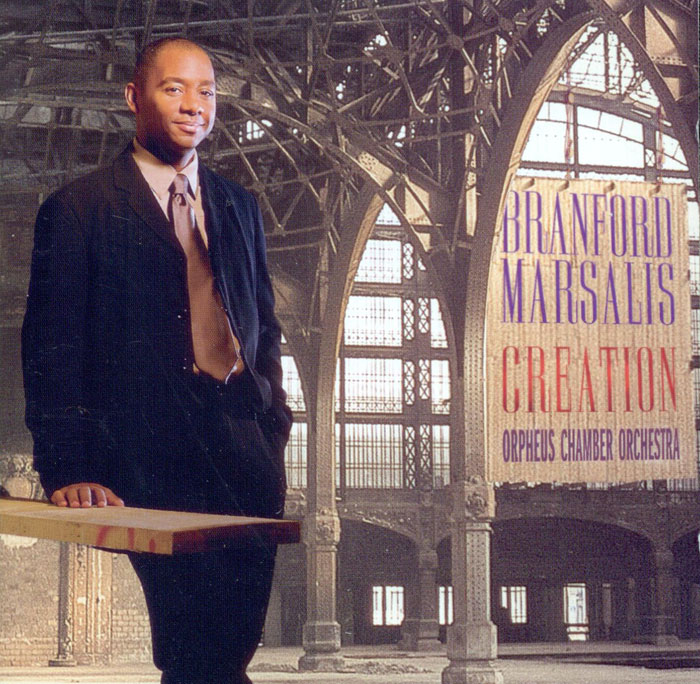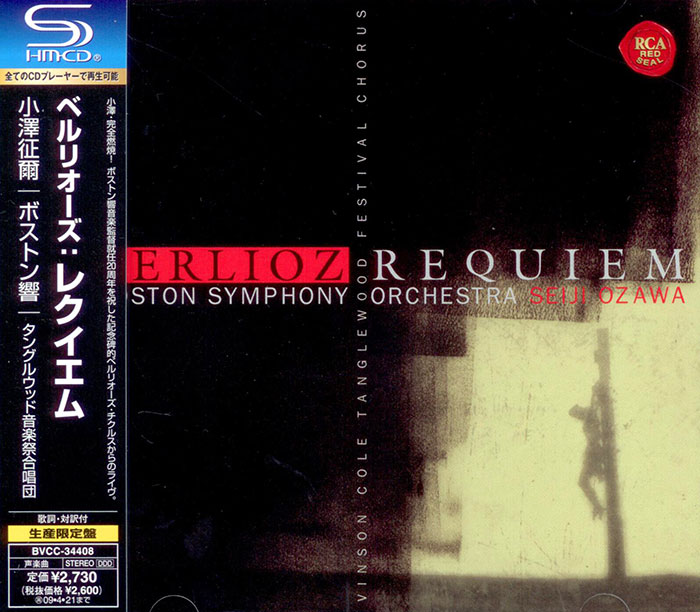Logowanie
Dziś nikt już tak genialnie nie jazzuje!
Bobby Hutcherson, Joe Sample
San Francisco
SHM-CD/SACD - NOWY FORMAT - DŻWIĘK TAK CZYSTY, JAK Z CZASU WIELKIEGO WYBUCHU!
Wayne Shorter, Freddie Hubbard, Herbie Hancock, Ron Carter, Elvin Jones
Speak no evil
UHQCD - dotknij Oryginału - MQA (Master Quality Authenticated)
Chesky! Niezmiennie perfekcyjny
Winylowy niezbędnik
ClearAudio
Double Matrix Professional - Sonic
najbardziej inteligentna i skuteczna pralka do płyt winylowych wszelkiego typu - całkowicie automatyczna
SATIE, DEBUSSY, RAVEL, FAURE, Brandford Marsalis, Orpheus Chamber Orchestra
Creation
- Brandford Marsalis - saxophone
- Orpheus Chamber Orchestra - orchestra
- SATIE
- DEBUSSY
- RAVEL
- FAURE
Branford Marsalis' second classical album -- released a yawning 15 years after his first -- is a far more successful project than its predecessor, dwelling entirely within the world of French music of the 20th century. Thankfully, Marsalis doesn't have to rely too heavily upon transcriptions this time, choosing interesting, stimulating, often jazz-influenced works with a genuine saxophone part, and he has the expert backing of New York City's Orpheus Chamber Orchestra, who doesn't use a conductor and doesn't need one. For Marsalis' fans, this album is also a rare opportunity to hear him on alto saxophone, along with soprano, and like his brother, Wynton, Branford Marsalis plays entirely and knowingly within the classical style, with one pardonable exception noted below. The CD begins deceptively with some Ronnie Bauch transcriptions of pastoral standard stuff by Satie, Debussy, and Ravel, but then veers into the authentically orchestrated strains of Milhaud's juxtapositions of melancholy and whoop-de-do hijinks, "La Creation Du Monde," which has a prominent part for alto saxophone. It's a fine rendition, too, well-paced, very polished and urbane, yet sufficiently raucous -- if not ideally swinging -- in the jazzy stretches. Listeners also get Milhaud's own version of the flippant "Scaramouche Suite" for alto saxophone and orchestra, which receives a performance filled with refinement and sass, and Ibert's delightful, neo-classical "Concertino Da Camera for Alto Saxophone" and "Orchestra," where Marsalis improvises his own cadenza with some of the post-bop fire that he displays in jazz. Sprinkled around the big works by Milhaud and Ibert are four excerpts from Milhaud's "Saudades do Brasil," performed by Orpheus with a detailed awareness of the music's swaying polytonal intricacies. A winner from Marsalis, sumptuously recorded and proof that good things can come from those who wait. ~ Richard S. Ginell Orpheus Chamber Orch;



































